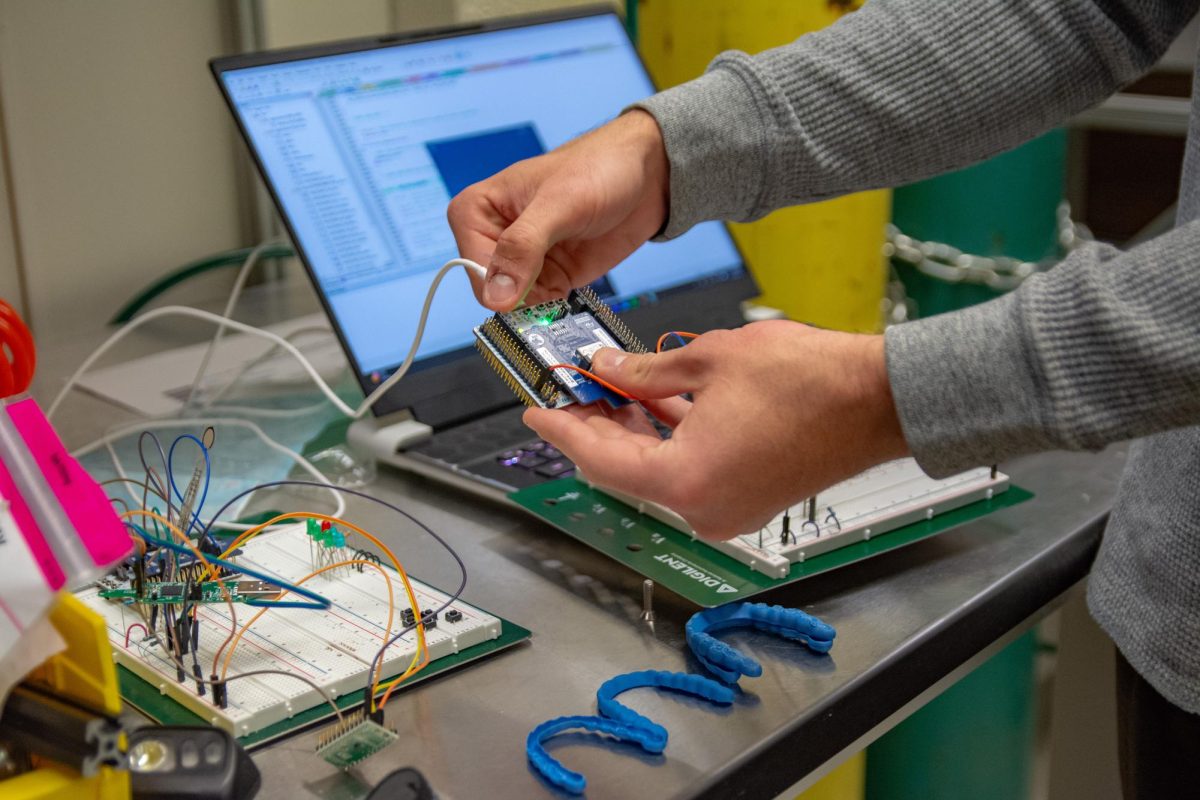On Oct. 26, the University announced that the National Science Foundation awarded the Institute for Inclusion, Diversity, Equity & Access at the Grainger College of Engineering a grant that will last for two years and can be renewed for another three years.
With the grant, the Developing Equity-Minded Engineering Practitioners center will be created in partnership with Morgan State University, a historically Black college in Baltimore, Maryland.
Partnership with Morgan State University began in the summer of 2023 with the Jumpstart DEEP Research Engagement initiative with the Clarence M. Mitchell, Jr. School of Engineering at Morgan State University.
DEEP’s goal is to train faculty on diversity, equity and inclusion principles and how to include them in their classrooms or labs. To help facilitate this, they plan to host workshops and provide examples of relevant lessons, according to the College of Engineering.
The proposal for DEEP was submitted in November of 2022 by the staff members at IDEA. IDEA was founded by Lynford Goddard, professor in Engineering and associate dean for diversity, equity and inclusion at the College of Engineering.
Get The Daily Illini in your inbox!
Associate Directors Ellen Wang Althaus and Ashleigh Wright were also heavily involved in brainstorming and writing the proposal, and the project received funding from the Office of the ADR’s Strategic Research Initiative Program.
“One of the priorities of Grainger is to not only diversify our faculty and staff populations, but to really build collaborations with our other engineering colleagues,” Wright said. “I think the college has done a really good job in investing in those initiatives primarily through the IDEA institute. The reason we’ve chosen Morgan State is because we have alumni from Illinois that are currently faculty there, so we decided that we wanted to really deepen our partnership.”
This involved doing a faculty exchange in August, where three members from each campus visited the other for a week to meet with the rest of the faculty, have conversations about the research they were doing and discuss potential collaborations.
“We believe that to have strong deep partnerships, particularly from institutions that have different cultural experiences, it’s really an experience, what each faculty goes through on their own campus,” Wright continued. “And so we wanted to have an opportunity where faculty could really visit the campus, be in the environment, see the spaces and talk to each other. And so that was the premise of the Jumpstart.”
When asked about the main differences between primarily white institutions like the University of Illinois and HBCUs like Morgan State, Goddard explained that it involves the difference in scale of operation, as well as cultural context.
“Most HBCUs are relatively small compared to UIUC,” Goddard said. “We have huge classes. The HBCUs tend to have smaller class sizes, the faculty hold a lot of office hours, and there’s a lot of one-on-one interactions between the faculty and the students because they’re not research-intensive. They’re moving towards research-intensive, which means that they’re going to expect their faculty to teach fewer courses and do more research.”
According to Goddard, while most professors at the University of Illinois teach two courses a year, or even just one if they are more focused on research, faculty at HBCUs tend to teach four courses per semester.
In order to become more research-intensive, as potentially the first HBCU to move from R2 to R1 status, Morgan State needs to build research infrastructure and change the way they teach, for which the University of Illinois can provide a model.
On the flip side, Morgan State can provide important insights for the College of Engineering’s efforts to incorporate more diversity, equity and inclusion topics into their curriculum, which is a priority for the engineering accreditation board.
“In bringing history and cultural context and the things that affect communities of color, the HBCUs are a lot stronger because they already do this,” Goddard said.
“At Illinois, we don’t have that sort of cultural context to draw, so it’s harder to weave in concepts that are related to the community into engineering courses,” Goddard added.
According to both Goddard and Wright, there are plans to discuss further collaborations with Morgan State in the spring, such as an exchange of graduate students between the two universities next summer.
They also hope to have deeper engagement with other minority-serving institutions in Illinois with the goal of expanding the existing framework of inter-institutional partnerships, as well as continuing to increase diversity, equity and inclusion at the College of Engineering.
“We are honored to partner with Morgan State University to co-create a joint center to bring about positive change,” said Dean Rashid Bashir said on IDEA’s website. “We are committed to building a more inclusive college at Illinois, as well as a more diverse academic culture more broadly.”





